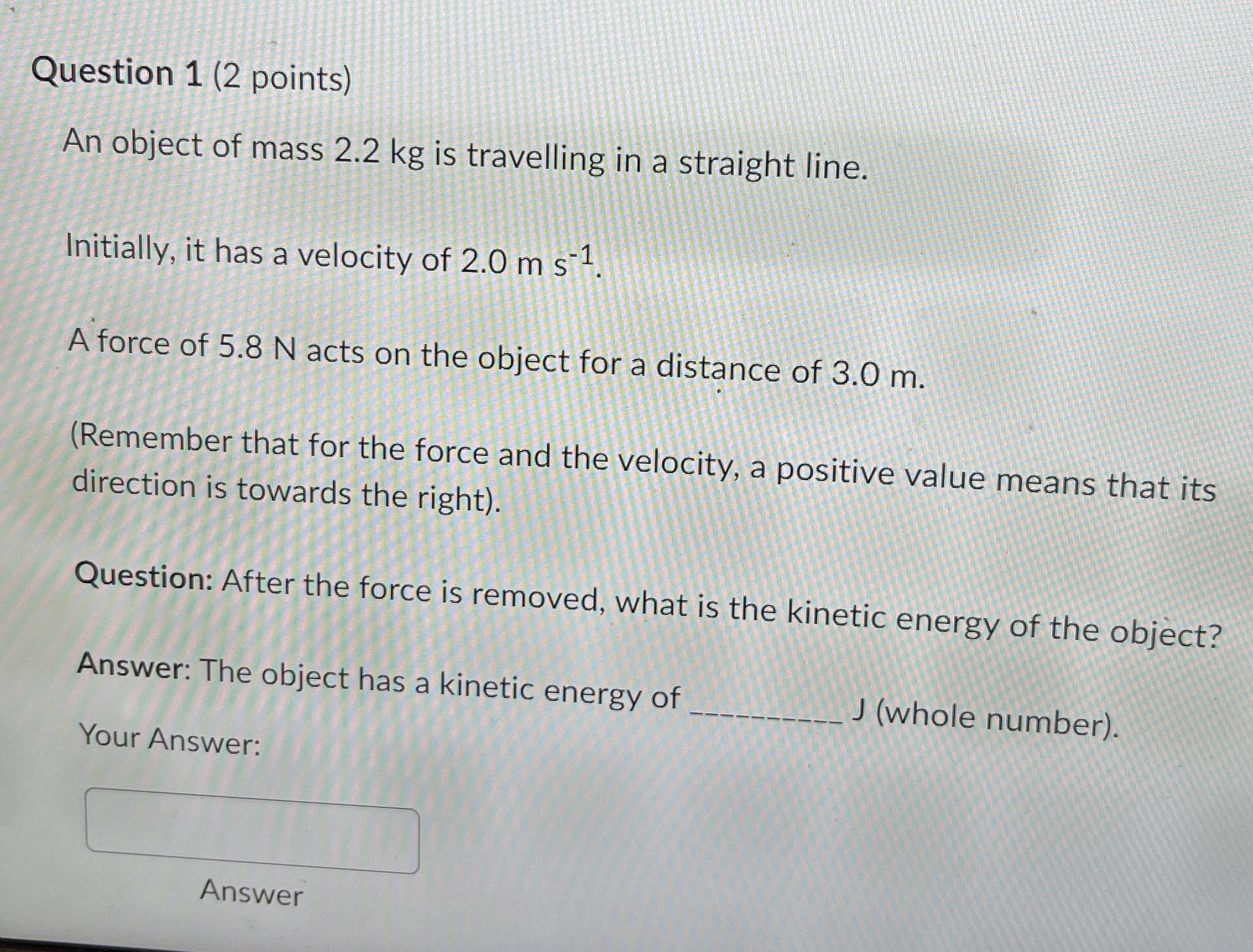After the force is removed, what is the kinetic energy of the object?

Understand the Problem
The question is asking for the kinetic energy of an object after a force has acted on it. To solve it, we need to calculate the final velocity of the object after the force is applied, and then use that to find the kinetic energy using the formula KE = 0.5 * m * v^2.
Answer
$27 \, \text{J}$
Answer for screen readers
The object has a kinetic energy of $27 , \text{J}$.
Steps to Solve
- Calculate the Acceleration Due to the Force
To find the acceleration, use Newton's second law: $$ F = m \cdot a $$ Where:
- $ F = 5.8 , \text{N} $
- $ m = 2.2 , \text{kg} $
Rearranging gives: $$ a = \frac{F}{m} = \frac{5.8 , \text{N}}{2.2 , \text{kg}} $$
- Calculate the Resulting Acceleration
Now divide the force by the mass: $$ a = \frac{5.8}{2.2} = 2.636 , \text{m/s}^2 $$
- Calculate the Final Velocity
Use the kinematic equation: $$ v_f = v_i + a \cdot t $$ First, we need to find the time it takes to travel 3.0 m. Using the equation: $$ d = v_i \cdot t + \frac{1}{2} a \cdot t^2 $$ Here:
- $ d = 3.0 , \text{m} $
- $ v_i = 2.0 , \text{m/s} $
We can substitute this to find $ t $: $$ 3.0 = 2.0 \cdot t + \frac{1}{2} \cdot 2.636 \cdot t^2 $$
Using the quadratic formula or numerical methods will yield $ t \approx 1.118 , \text{s} $.
Now use $ v_f $: $$ v_f = 2.0 + 2.636 \cdot 1.118 $$
- Calculate the Final Velocity
Calculating this gives us: $$ v_f \approx 2.0 + 2.944 \approx 4.944 , \text{m/s} $$
- Calculate the Kinetic Energy
Finally, apply the kinetic energy formula: $$ KE = 0.5 \cdot m \cdot v_f^2 $$ Substituting the values: $$ KE = 0.5 \cdot 2.2 \cdot (4.944)^2 $$
Calculating this will give you the kinetic energy.
- Calculate the Kinetic Energy Value
Calculating the final value: $$ KE = 0.5 \cdot 2.2 \cdot 24.44 \approx 26.87 , \text{J} $$
Therefore, rounding to the nearest whole number gives: $$ KE \approx 27 , \text{J} $$
The object has a kinetic energy of $27 , \text{J}$.
More Information
Kinetic energy measures the energy of an object due to its motion. The formula used is derived from work-energy principles.
Tips
- Forgetting to convert units if necessary.
- Not including initial velocity in the calculations.
- Miscalculating time when using kinematic equations.
AI-generated content may contain errors. Please verify critical information